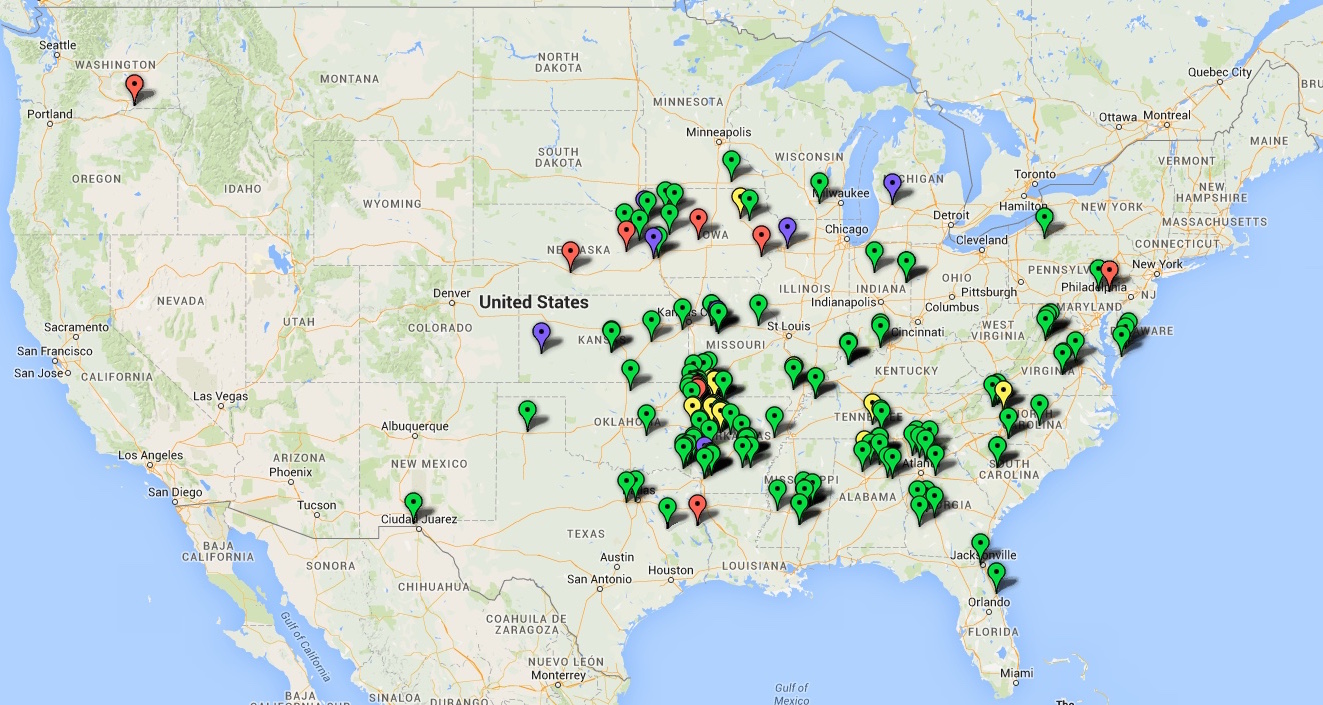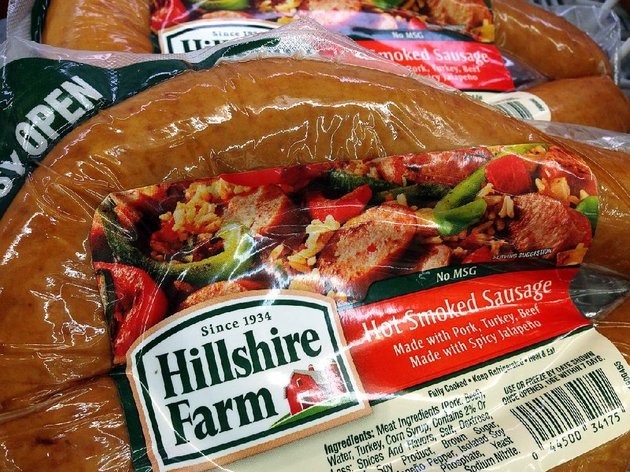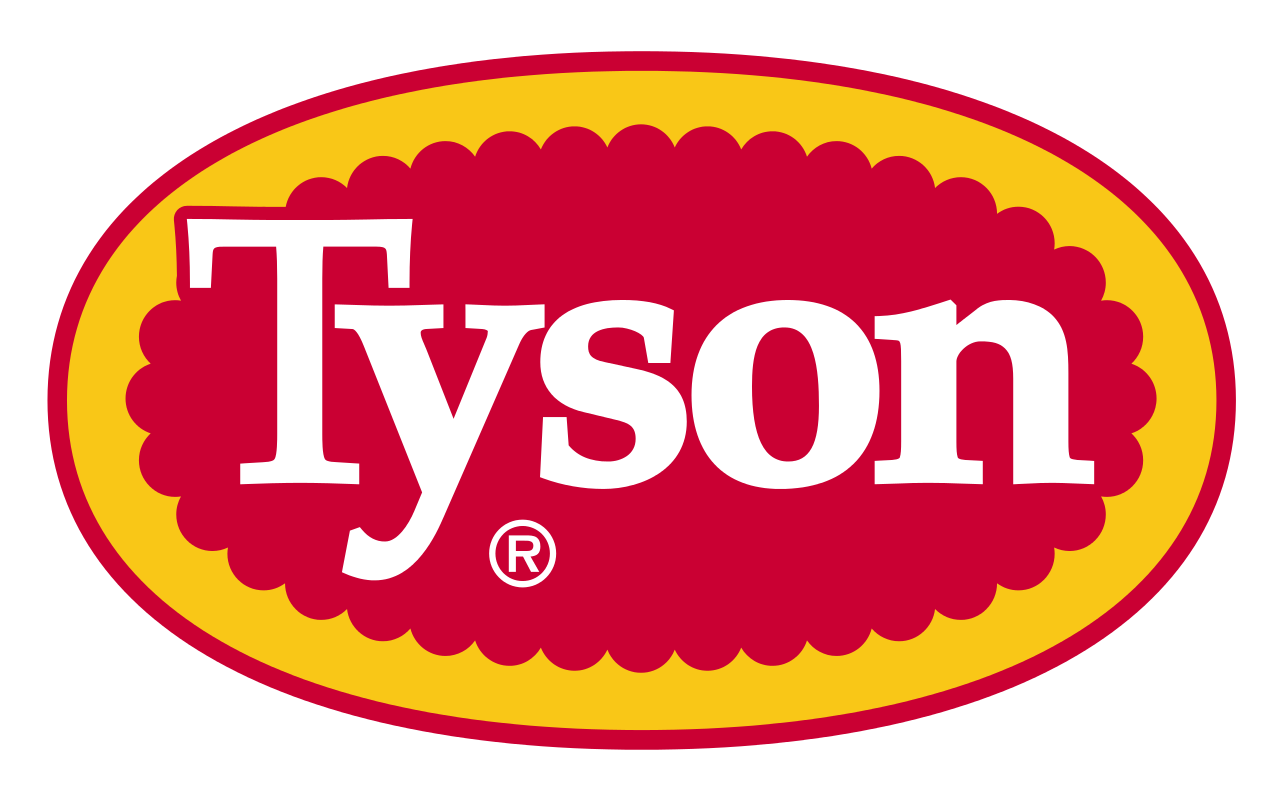Tyson leads two rivals in EPA violations

The average Tyson Foods facility will spend nearly six months in violation of an environmental law every three years, an analysis of U.S. Environmental Protection Agency records found.
The company received attention in June for dumping an acidic feed compound into Monett, Mo.'s wastewater treatment plant, killing about 100,000 fish. However, Tyson's facility in Monett is not alone in failing to meet environmental standards.
From 2009 to June 2014, Tyson Foods was fined about$4.2 million by the EPA for violations in about 35 facilities relating to the Clean Water Act, Clean Air Act and the Resource Conservation and Recovery Act.
About 33 Tyson facilities were in violation of one of the acts at the end of June. Currently, more than 40 Tyson facilities are in violation of an environmental law -- at least 20 percent of the company's 198 facilities found in the EPA database.
"It is not normal for an industry to have 20 percent in violation," said Scott Edwards, co-director of food and water justice at Food & Water Watch, a Washington, D.C.-based environmental group.
At the end of June, 9 percent of Smithfield Food's facilities and 16 percent of JBS S.A.'s facilities were not in compliance, records indicate. Smithfield and JBS, which majority owns Pilgrim's Pride, are two of Tyson's largest competitors.
JBS had one facility in "serious violation" of an environmental law, EPA records state. No Smithfield facilities were considered serious violators. At least four Tyson facilities were listed as in serious violation of an environmental law, according to records.
For example, a Tyson Fresh Meats facility in Holcomb, Kan., has been in serious violation of the Resource Conservation and Recovery Act for the past three years, records state. Records indicate the facility has had compliance problems with used oil from generators.
And in Dakota City, Neb., a Tyson facility has spent 10 of the past 12 three-month quarters in serious violation of the Clean Water Act. That facility dumped 2,100 percent more chlorine than allowed in its permit into the Missouri River between January and March, records state.
"We take our environmental compliance efforts and resource conservation responsibilities very seriously and consider responsible behavior essential to conducting business," said Worth Sparkman, a Tyson spokesman, in an email. "We work to continually improve our operations, keeping the environment for future generations in mind at all times."
"For all incidents that end up in these reports, we work with the agency involved, conduct our own internal investigation and develop plans for corrective action," he said.
The largest fine occurred in 2013, when 23 facilities were collectively fined $3.95 million after anhydrous ammonia was released at facilities in Kansas, Missouri, Iowa and Nebraska, resulting in multiple injuries, property damage and one death, according to an EPA news release.
"Company officials dispute many of the EPA's assertions, but acknowledge there was a period when some refrigeration improvement projects fell behind schedule and Tyson did not meet all the obligations required under the program at several locations," Tyson said in a news release at the time.
The smallest fine was $250, at a facility in Decherd, Tenn. Besides the $3.95 million fine in 2013, the second-largest fine was $50,000.
The Holcomb location was one of the facilities affected by the $3.95 million Clean Air Act fine, but has only been fined $2,500 for violations under the Resource Conservation and Recovery Act.
"Their revenue is counted in the many billions of dollars per year. When you're issuing fines, even a million-dollar fine, it doesn't mean much," Edwards said. "Paying fines is simply the cost of doing business."
In the past five years, Tyson has been fined more than its competitors for issues at a higher percentage of its facilities.
From June 2009 through June 2014, the EPA fined about 14 percent of JBS, S.A.'s 74 facilities in the EPA database. JBS paid about $3.4 million to the EPA.
Only 4 percent of Smithfield Foods' 120 facilities in the EPA database were fined during that time period. The company paid a total of about $330,000 to the EPA.
"We want to point out that we're the largest company in a highly regulated industry," Sparkman said.
More environmental fines could be ahead for Tyson.
Missouri Attorney General Chris Koster filed a lawsuit against Tyson Foods in June for the Monett release. The EPA also has launched a criminal investigation, according to a Tyson quarterly report.
Nancy Gonder, spokesman for the Missouri attorney general's office, said the investigation is ongoing, but said she could not provide further details. Jennifer Colaizzi, spokesman for the EPA, said she could not comment on an "ongoing investigation."
"If we become subject to criminal charges, we may be subject to a fine and other relief, as well as government contract suspension and debarment," Tyson said in its quarterly report. "We are cooperating with the Environmental Protection Agency but cannot predict the outcome of its investigation at this time."

